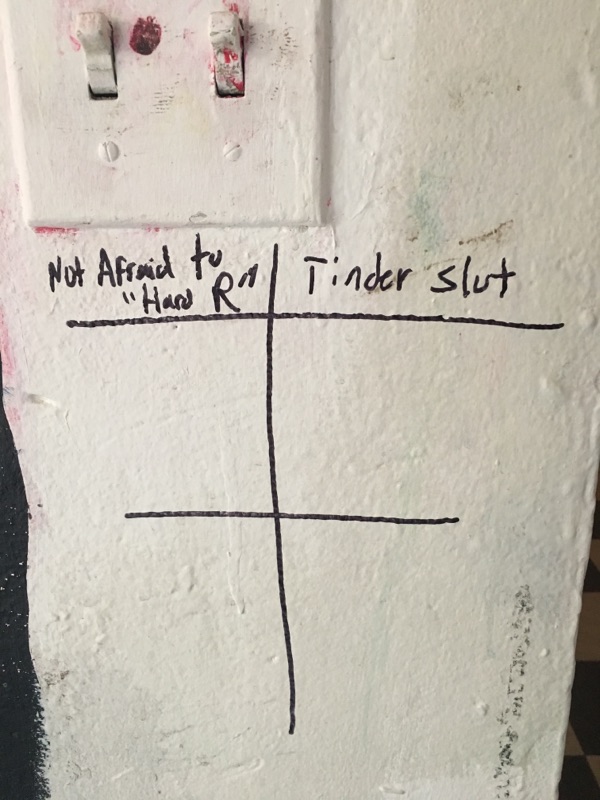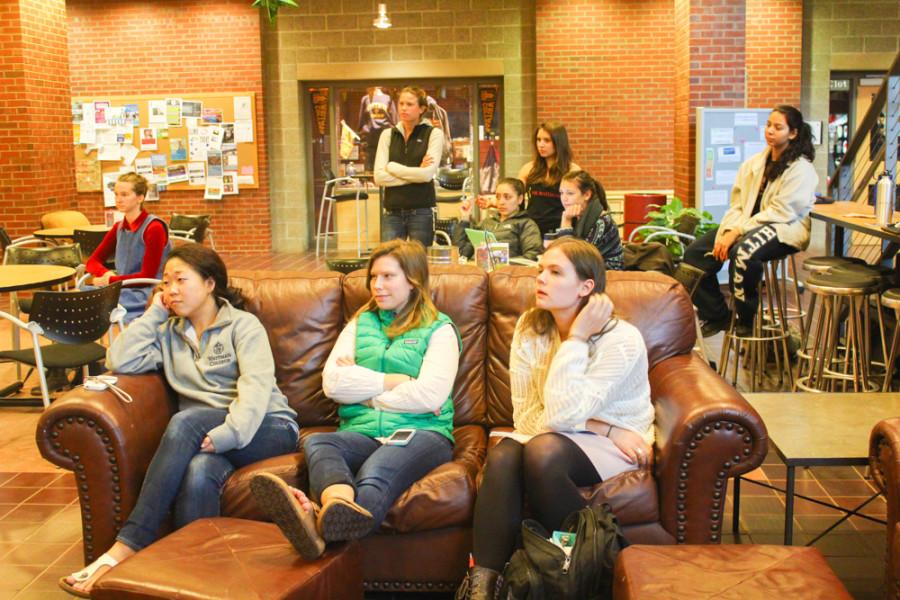This year’s recruitment solidifies an upward trend for the Whitman Greek system.
According to Panhellenic Recruitment Coordinator Rachel Constantino-Wallace, 89 girls went through recruitment last year. This year that number increased to 104.
Although the fraternities do not keep track of numbers during rush, there is a similarly good vibe about the body count.
“My estimate just from experience is probably that about 70-80 guys are going through rush: 20 guys per house, which would be a really good rush for the fraternities,” said Interfraternity Council President Chase Cooper.
According to Constantino-Wallace, recruitment has been especially successful considering national trends. The number of Greek affiliates at liberal arts colleges has been decreasing. Both Cooper and Constantino-Wallace attribute this year’s success to the large number of Greek RAs.
“I think there is a pretty large concentration of Greek RAs, and even though they are disaffiliated during rush, it still helps people figure out that so and so is a TKE or Phi, and that helps to turn people on to thinking about the system in a way that they wouldn’t normally,” said Cooper.
“In years past when there were poor numbers, you can usually attribute that to the fact that [first-year students] don’t meet a lot of Greeks. It really helps to have RAs that are Greek because they see that Greeks are very involved in things outside of their house and that Greek life does not displace everything else,” said Constantino-Wallace.
Whatever the reason, the high numbers may mean changes for the Greek community.
“If the numbers continue being pretty high, then we would be looking for a fourth sorority in the next few years,” said Constantino-Wallace.
This is especially interesting considering that in 2005, the sorority Delta Delta Delta was pulled from Whitman by its headquarters because their numbers had been declining for many years. However, with the success of the last few years, Constantino-Wallace thinks Whitman could support a fourth sorority.
“With pledge classes of 35, you could easily take ten out of each of those and give it to the other sorority and get them down to 25. That’s a very attractive proposal for those girls: they get to be the founding members, they get to build it from the ground up and they get to establish what it is. So I think that the fact that [a new sorority] isn’t established on campus will be somewhat out weighted by the fact that it is new and exciting and different,” said Constantino-Wallace.
Regardless, there is an intangible aspect to recruitment.
“Some years the buzz on the campus is good about the Greek system for x, y and z reasons and some years it’s not,” said Cooper.
“It’s a very weird process. We joke about it being sort of like dude-flirting or man-dating. That’s basically what you are doing, you’re sort of courting them on a very informal date because we aren’t committed yet,” he said.
As weird as rush might be, Cooper also sees it as important.
“You can invoke stereotypes [about Greeks], but we have a really good relationship with the administration and the community. We experience very few of the problems that you could hypothetically have. I think the Greek system is really important to the campus, and it’s really exciting to see it do so well,” said Cooper.












